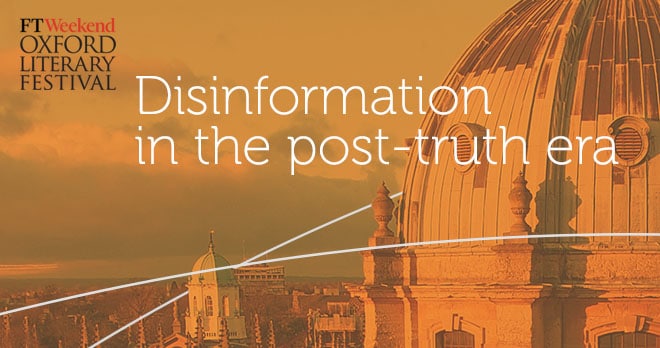The post-truth era through the lens of a specialist defamation lawyer

Much debate has been stimulated by Donald Trump’s tweets and press conferences regarding the concept of truth. Trust in traditional and social media has abated significantly over the last decade, with the impact of spin on news releases contributing to that mistrust. As trust in mainstream media diminishes so the awareness of individual rights in relation to information increases. The focus on “truth” is shifting.
Several distinguished minds have analysed the post-truth era of late. The forthcoming Oxford Debate on the issue, part of the FT Weekend Literary Festival to take place on 17 March at Worcester College, will be between Matthew d’Ancona and Alice Thwaite. Matthew has just released a book entitled Post Truth: The New War on Truth, in which he discusses the declining value of truth and the increasing prevalence of easily digested and packaged alternative reality.
The lack of appetite for complex reporting of news in shades of grey and the preference for a black and white, “good guys and bad guys” alternative reality was eloquently observed in Adam Curtis’ film Bitter Lake.
The development of the sound bite, which imprints a version of events on the consumer’s memory with far greater impact than any later correction, has encouraged spin to the point of little or no basis in fact.
This, apparently, is the post-truth era.
The impact of the Internet and social media on fact
With the decrease in consumption of mainstream media many younger members of the demographic get their news from blogs and social media. This “news” can prefer number of views over factual accuracy to such an extent that little regard is had for fact checking.
This new news model aims to achieve 'clicks', 'likes' and 'shares' by capturing short burst of attention, rather than encouraging more in-depth consideration of complex issues. This short-burst news often succeeds by reflecting your own views back towards you or showing you things it will know you will find objectionable - the 'good guys, bad guys' model in action.
The end result is that simplistic content that generates 'clicks' and views is gaining a wider reach than content that encourages long-form critical scrutiny.
Whether this is the result of media outlets competing for revenue in a competitive market or something more insidious is still up for debate, but the bottom line is that when these priorities shift to such an extent, there is often little regard left for fact checking.
In addition to the changes in sources of news the Internet brings greater access to publication. Reports, posts and videos on individual’s social media accounts are often picked up by mainstream media and circulated in order to feed the voracious appetite for churn of news. The Oxford Debate on post-truth will no doubt explore this impact.
Democratisation of information control
In tandem with greater access to publication and wider sources of news there is greater awareness of the rights of individuals to preserve or even enhance their reputation.
Specialists in defamation law are often approached to advise individuals on taking action to preserve or defend their reputations. Businesses are more and more likely to view their reputation as something that they are willing to spend money defending and use of the law for this purpose is increasing.
The recent cases on the right to be forgotten, elements of which are soon to be enshrined in the new data protection law, have shown the growing awareness of individuals of their right to correct information held and published about them. Some cases currently before the courts concern individuals who have a series of previous convictions for fraud wanting to hold themselves out as having reputations for being highly trustworthy and to delete any reference to their previous history.
Arguably this is the amendment of news to the extent of improving an individual’s reputation rather than simply preserving it. Those arguments are currently being considered but add to the trend for democratising the control of information.
Accuracy of available information is key to making informed decisions.
What information can we “trust” and how do we re-establish a method of fact checking in the post truth environment?